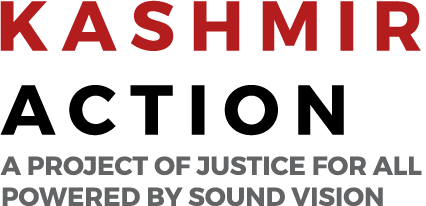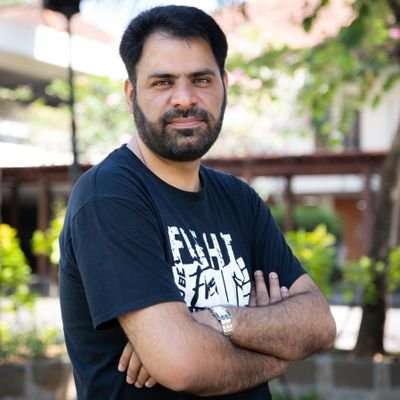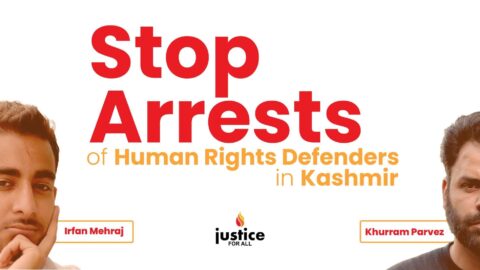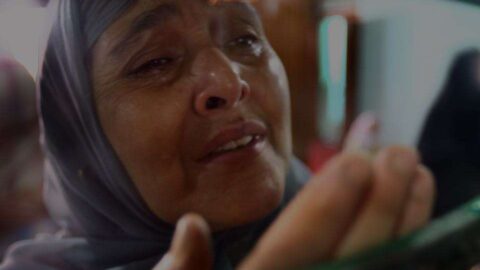Kashmir Scholars Consultative and Action Network Stop Arrests of Human Rights Defenders in Kashmir Public…
The case of Human Rights Defender Khurram Parvez
Kashmiri Prisoners of Conscience:
Introduction
- Khurram Parvez, 44, is the chairman of the Asian Federation Against Involuntary Disappearances (AFAD) and coordinator of the Jammu Kashmir Coalition of Civil Society (JKCCS), a prominent rights group in Indian-administered Kashmir.
- Khurram has been actively involved in raising awareness about human rights violations in Jammu and Kashmir, including issues related to arbitrary detention, torture, and enforced disappearances. He has also been vocal in his opposition to the Indian government’s decision to revoke the special status of Jammu and Kashmir in August 2019 and the subsequent restrictions on movement and communication in the region.
- One of the major groundbreaking revelations by the JKCCS, led by Parvez, was the presence of more than 2,000 unmarked graves in the northern part of Indian-occupied Kashmir in 2008. The graves, according to analysts, belong to numerous Kashmiris who have been forcibly disappeared by the Indian forces and never returned home. The report shook the region[1].
- Khurram’s organization has published a series of reports detailing the “impunity enjoyed by the armed forces” in the disputed region. They have published accounts of hundreds of victims of custodial torture at the hands of Indian forces[2].
History of Detentions, Intimidation, and Ongoing Incarceration
- In 2016, Parvez was barred from traveling to Switzerland to participate in a session of the United Nations Human Rights Council. A day later came Khurram’s first detention. He was arrested under the Public Safety Act (PSA), a draconian anti-dissent law under which a person can be detained for a year or more without trial. He was released after 76 days of detention. His detention was widely criticized by human rights organizations, who argued that it was politically motivated and aimed at silencing his activism[3].
- In a first-ever report released by the Office of the United Nations High Commissioner for Human Rights (OHCHR) in 2018 on rights violations in Indian-occupied Kashmir, the work of Khurram’s organization JKCCS was widely quoted and cited. In another report in 2019, the UN advocated the formation of a commission of inquiry into the disclosures by JKCCS of rights violations in Kashmir. The state’s intimidation of Khurram and his volunteers exponentially grew after these reports and the wide recognition they received. Khurram’s work challenged the state’s facade of normalcy in the region.
- Parvez was arrested again in November, 2021, under an arbitrary terrorism law, the Unlawful Activities Prevention Act (UAPA), for “criminal conspiracy and waging war against the government”. The UAPA has been systematically used against Kashmiri dissidents. The UAPA legitimizes the detention of an individual without any trial for six months and instead of the government justifying the detention, it turns the burden of proof on the accused. In Kashmir, the rampant use of the UAPA resulted in many Kashmiris jailed for crimes never committed. After spending years in prison, many of them were declared innocent and released. Since 2019, at least 2,300 people have been arrested under the UAPA in the region. Almost half of them are still in prison[5].
- Khurram was charged with “criminal conspiracy,” “waging, or attempting to wage war, or abetting waging of war, against the Government of India,” “punishment for conspiracy to wage war against the Government of India,” “raising funds for terror activities,” “punishment for conspiracy,” “recruiting any person or persons for commission of a terrorist act,” “offense relating to membership of a terrorist organization,” and “offense of raising funds for terrorist organizations.” Human rights groups maintain that these charges are fictitious and the real grounds of his arrest is the human rights work that Khurram is doing[6].
- In November, 2021, alongside detaining Khurram, his office was ransacked and raided by the Indian armed forces and the notorious National Investigation Agency (NIA). The National Investigation Agency (NIA) then arrested Parvez after carrying out a raid for more than 15 hours at his home and the office of the Jammu-Kashmir Coalition of Civil Society, which he leads[7]. He was shifted to Tihar Jail, New Delhi, on 24th November, where has been ever since. He has been placed in Tihar Jail’s maximum security prison[8].
- Khurram’s phone, his laptop, his wife’s phone, and many books were seized by the NIA.
- Khurram’s wife, while speaking to the news outlet AlJazeera stated that “Khurram has been booked under so many cases in the past and now there are new cases. More than a shock, this is all very normal here now,” Mir said. “It is all because of his human rights work.”[9]
- However, this isn’t the first time that Khurram’s office was raided by the Indian state. In October, 2020, his office at JKCCS was similarly raided and volunteers intimidated.
- On 27th March, 2022, while Khurram was already in detention, the NIA carried out another raid at his home, and intimidated his family members.
- If convicted, Khurram could face up to 14 years of imprisonment or even the death penalty.
Family and a Broken Home:
- Khurram has a wife, and two children. While the family is not new to tragedies, Khurram’s prolonged detention has been a source of great mental and emotional trauma for them.
- In the words of Khurram’s wife, Sameena, the detention has left their children “traumatized”, as they were asleep when the house was raided.
- Instead of imprisoning Khurram in Kashmir, the Indian state shifted him to Tihar Jail, which is thousands of miles away from his home. Throughout the Covid-19, the family of Khurram was denied a meeting with him.
International Recognition and Global Calls for Release
- On 2nd December 2021, the United Nations human rights experts expressed concern over the arrest of Khurram Parvez and called for his immediate release. They said: “We are concerned that one month after Mr. Parvez’s arrest, he is still deprived of liberty in what appears to be a new incident of retaliation for his legitimate activities as a human rights defender and because he has spoken out about violations.”[10]
- On 21st June 2022, a resolution was introduced in the US Congress House of Representatives that condemned human rights violations in India, and particularly highlighted the case of Khurram Parvez, calling for his release.[11]
- On 16th November 2022, Khurram’s case was raised by the UN Secretary General in its report on reprisals against individuals seeking to cooperate or having cooperated with the UN, its representatives and mechanisms in the field of human rights.[12]
- On 21st November 2022, one year anniversary of Khurram’s detention was completed. On this day, 12 international NGOs, including Amnesty International and Human Rights Watch, issued a statement calling for his immediate and unconditional release[13].
- On the day of Khurram’s arrest, Mary Lawlor, U.N Special Rapporteur on Human Rights Defenders, stated in a tweet that “I’m hearing disturbing reports that Khurram Parvez was arrested today in Kashmir and is at risk of being charged by the authorities in India with terrorism-related crimes. He’s not a terrorist, he’s a human rights defender”[14].
- Rafto Foundation, a body working for the global promotion of human rights, in a statement appealed to “immediately release Mr. Parvez”.
- The World Organization Against Torture, based in Geneva, also expressed its deep concern for the arrest of Khurram.
- It is also worth mentioning here that Khurram Parvez was named by Time Magazine in its list of “100 Most Influential People of 2022”. The magazine called Parvez “a modern-day David who gave a voice to families that lost their children to enforced disappearances”[15].
Violations of International Law in Khurram’s Detention
- Under international human rights law, no one can be detained without a legitimate reason and anyone accused of a crime has the right to a fair trial. In the case of Khurram, both the legitimate reason is missing, so is the right to a fair trial.
- Other international conventions and laws that are being violated by the Indian state in its detention of Khurram are:
- International Covenant on Civil and Political Rights
- UN Convention Against Torture and Other Cruel, Inhuman or Degrading Treatment or Punishment and its Optional Protocol
- UN Body of Principles for the Protection of All Persons under any Form of Detention or Imprisonment
- UN Standard Minimum Rules for the Treatment of Prisoners
All these conventions grant protections to human rights defenders from illegal detention and also offer fundamental rights to political prisoners.
Actions Requested in the case of Khurram Parvez as recommended by International Federation For Human Rights
Please write to the authorities in India, urging them to:
- Guarantee in all circumstances the physical integrity and psychological well-being of Khurram Parvez and all other human rights defenders in India;
- Immediately and unconditionally release Khurram Parvez and put an end to all acts of harassment against him and all other human rights defenders in India, including acts of stigmatization and smear campaigns, and ensure that they are able to carry out their legitimate activities without any hindrance and fear of reprisals in all circumstances;
- Guarantee Khurram Parvez’s right to due process and fair trial;
- Immediately put an end to the use of repressive laws to target human rights defenders, ensure its compliance with international human rights standards, and repeal the Unlawful Activities (Prevention) Act (UAPA).
Possible Addresses:
- Mr. Narendra Damodardas Modi, Prime Minister of India, E-mail: pmosb@pmo.nic.in, Twitter: @narendramodi.
- Mr. Amit Shah, Union Minister of Home Affairs of India, Email: dirfcra-mha@gov.in.
- Mr. Ajay Kumar Bhalla, Secretary, Ministry of Home Affairs of India, Email: hshso@nic.in
- Mr. N.V. Ramana, Chief Justice of India, Supreme Court of India, Email: supremecourt@nic.in.
- Mr. Shri Devendra Kumar Singh, IAS, Secretary General Chief Executive Officer of the National Human Rights Commission of India, Email: sgnhrc@nic.in, Twitter: @India_NHRC.
- Mr. Indrajeet Kumar, Focal Point on Human Rights Defenders, National Human Rights Commission of India, Email: hrd-nhrc@nic.in.
- H.E. Mr. Rajiv Kumar Chander, Ambassador, Permanent Mission of India to the United Nations in Geneva, Switzerland. Email: mission.india@ties.itu.int
[3] https://www.aljazeera.com/news/2016/9/16/india-kashmir-police-arrest-activist-khurram-parvez
[11] https://www.congress.gov/bill/117th-congress/house-resolution/1196/text?r=1&s=1
[14] https://twitter.com/marylawlorhrds/status/1462821562566987781





